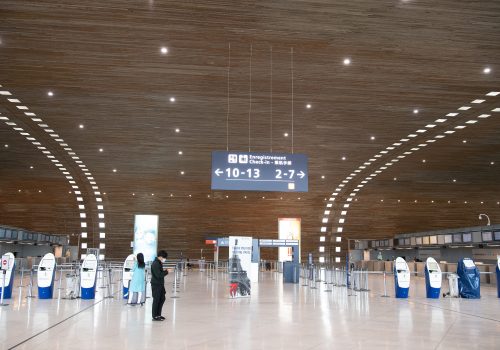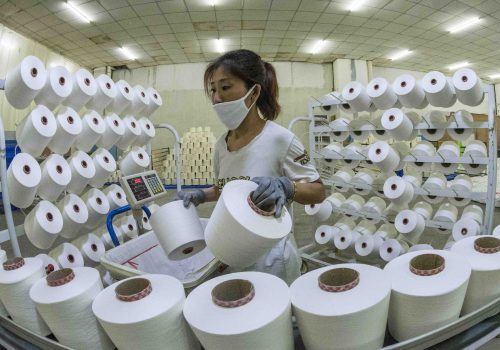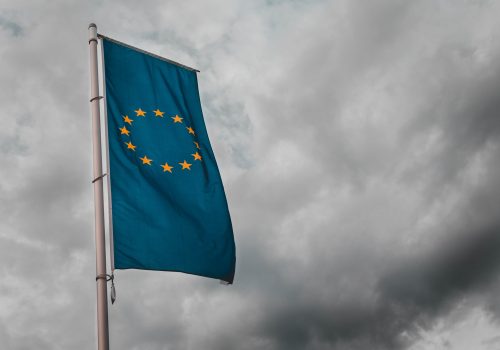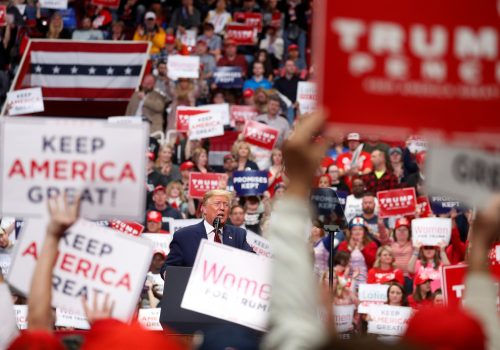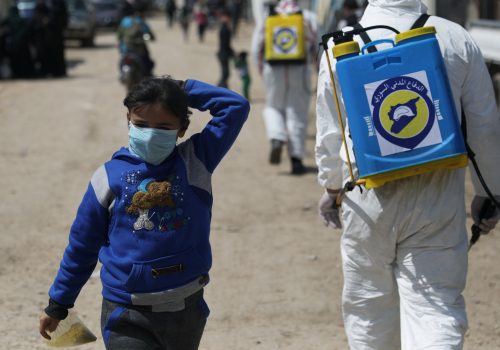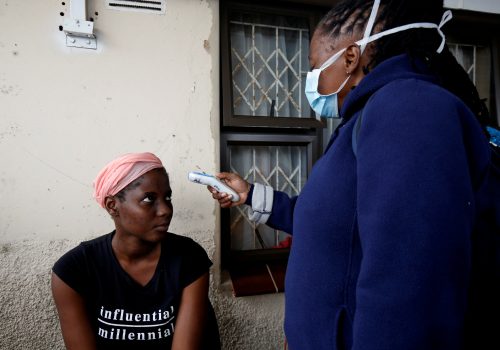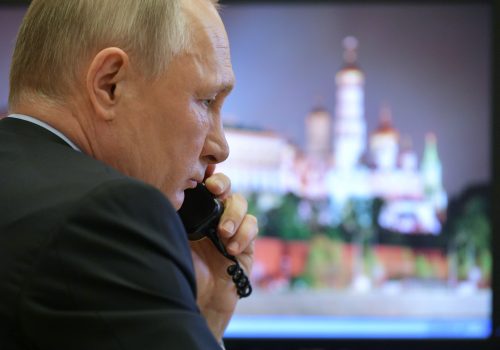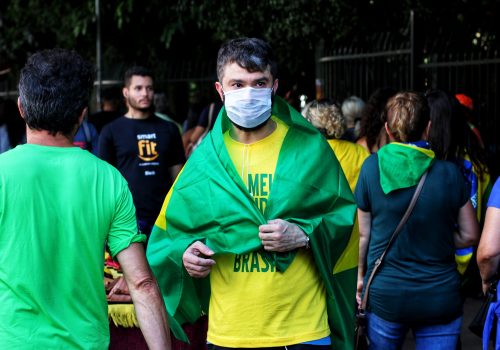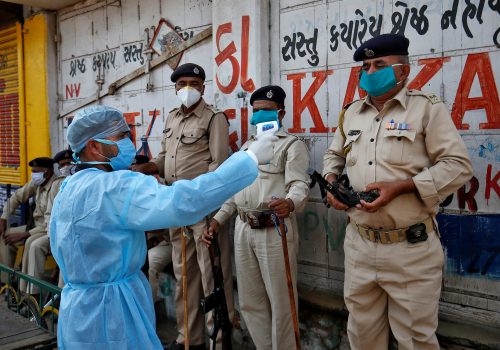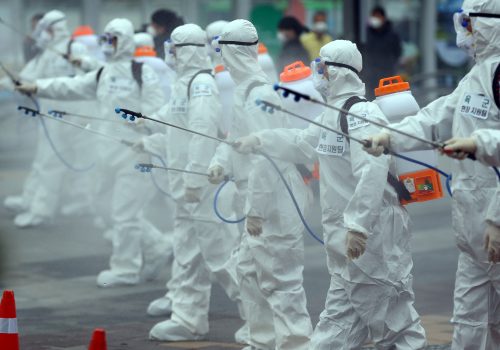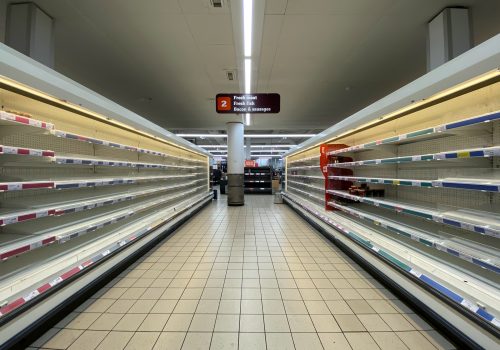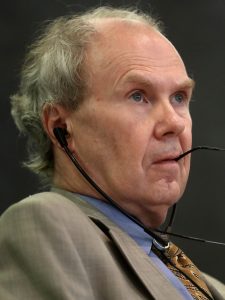An economic test for Putin and Russia
As of June 4, there were more than 440,000 cases of COVID-19 in Russia with only the United States and Brazil topping that number.
The number of deaths was surprisingly low—just over 5,000—prompting experts to believe that many deaths from coronavirus have been incorrectly attributed to other causes.1Holly Ellyatt, “Russia’s Coronavirus Cases Top 300,000 But Deaths Suspiciously Low: ‘We Conceal Nothing,’ Kremlin Says,” CNBC, May 20, 2020, https://www.cnbc.com/2020/05/20/russias-coronavirus-cases-top-300000.html. The Russian government downplayed the seriousness of the coronavirus for many weeks before calling for a lockdown at the end of March. Russian President Vladimir Putin had to concede that a referendum on constitutional changes could not go ahead last April, and he also had to cancel the big May 9 Victory Day parade.2Paul D. Shinkman, “Putin Cancels Victory Day Parade as Coronavirus Crisis Worsens in Russia,” U.S. News and World Report, April 16, 2020, https://www.usnews.com/news/world-report/articles/2020-04-16/putin-cancels-victory-day-parade-as-coronavirus-crisis-worsens-in-russia.
The full text of the paper is split across the various articles linked below. Readers can browse in any order. To download a PDF version, use the button below.
Before the crisis hit Russia, the Kremlin had been trying to score points, like China, against Western democracies with a public display of sending medical aid to Italy and New York. The real test for the regime is whether its standing takes a major long-term hit from the lack of preparation for the high number of cases.3Andrei Kolesnikov, Tatiana Stanovaya, and Alexander Baunov, “How Is Russia Coping With Coronavirus?” Carnegie Moscow Center, March 24, 2020, https://carnegie.ru/commentary/81351. Putin’s popularity dropped to 59 percent in an April survey by the independent Levada-Center, “the lowest point in more than two decades of his rule.”4Vladimir Isachenkov, “Putin SaCs Coronavirus Situation in Russia Has Stabilized,” ABC News, May 22, 2020, https://abcnews.go.com/International/wireStory/putin-coronavirus-situation-russia-stabilized-70832282.
As Russia begins to ease its lockdown, medical experts say Putin is taking a gamble by reopening while the number of cases remains high although well below the daily peak of 10,000 or more. A rebound in the number of cases would add to the embarrassment for Putin who had hoped to convince the Russian public to keep him in power for another decade after his current term ends in 2024. Russia’s GDP is expected to drop 4-6 percent this year as a result of the lockdown and low energy prices.
Will COVID-19 slow the global shift to renewable energy?
In the short-term, the pandemic almost certainly reduces greenhouse gas emissions due to lower energy demand.
But that shift is a two-edged sword. Innovation and adoption of green technology accelerates when fossil fuel prices are high and decelerates when they’re low.
Moreover, many of the parts for large-scale green energy programs come entirely or partially from China, other parts of Asia and the United States. These specialized supply chains have few substitutes. As an example, the pandemic has already slowed Chinese production of solar panels, delyaing projects in India and Australia.
One way to mitigate existing low prices would be through increased taxes on fossil fuels, which would help to incentivize continued changeover to renewables.
A prolonged shutdown, such as happened in Western Europe and the United States, could still be a test for the Russian economy.
See where US leadership is most vulnerable
Related Content
About the authors
Image: Russian President Vladimir Putin work before a meeting on the situation with the spread of the coronavirus disease (COVID-19) in Russia, at the Novo-Ogaryovo state residence outside Moscow, Russia April 13, 2020. Sputnik/Alexei Druzhinin/Kremlin via REUTERS ATTENTION EDITORS - THIS IMAGE WAS PROVIDED BY A THIRD PARTY.
